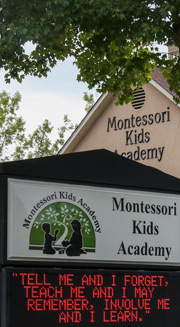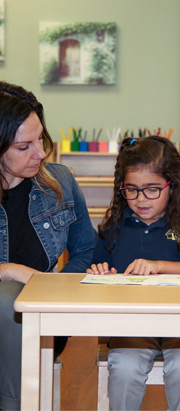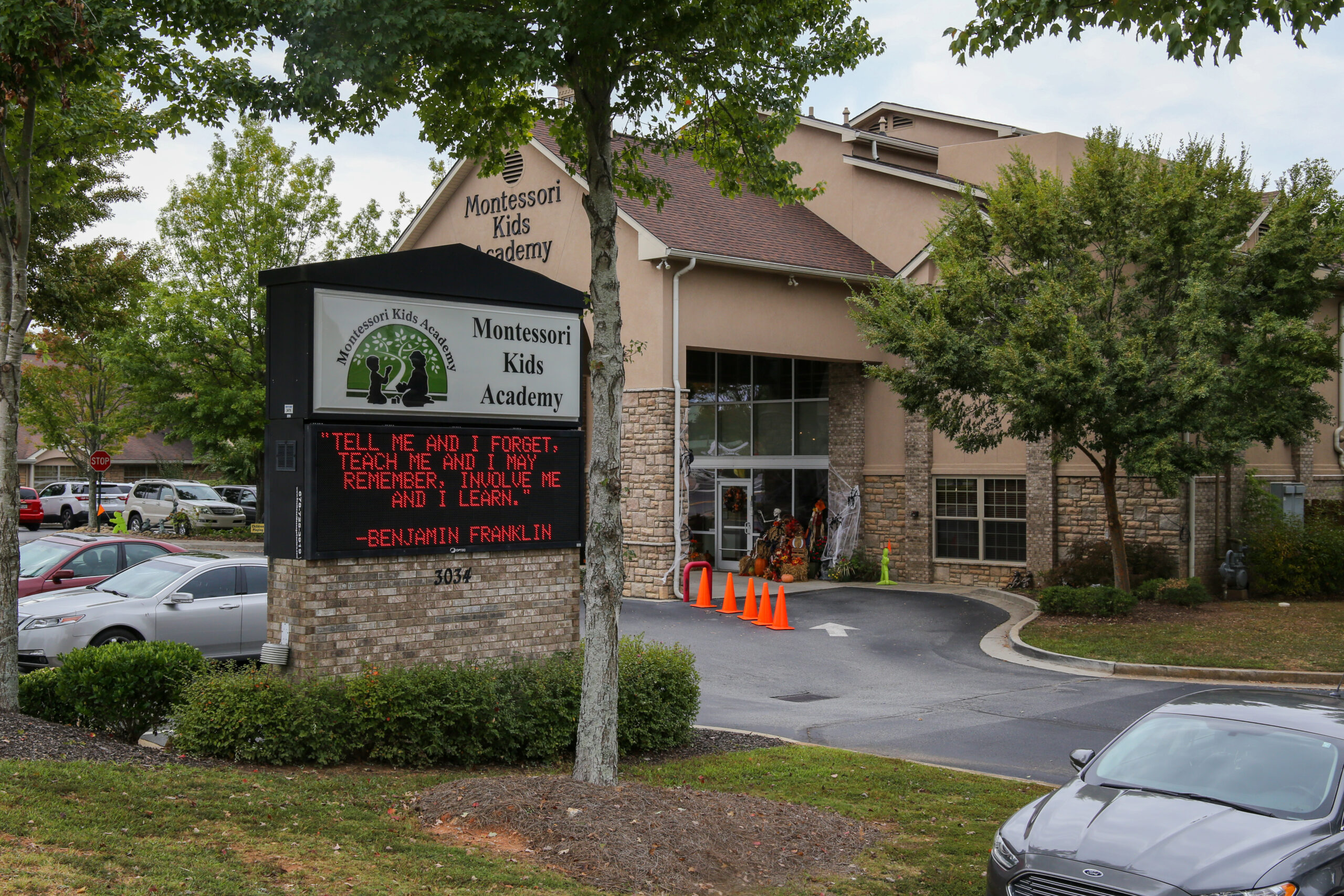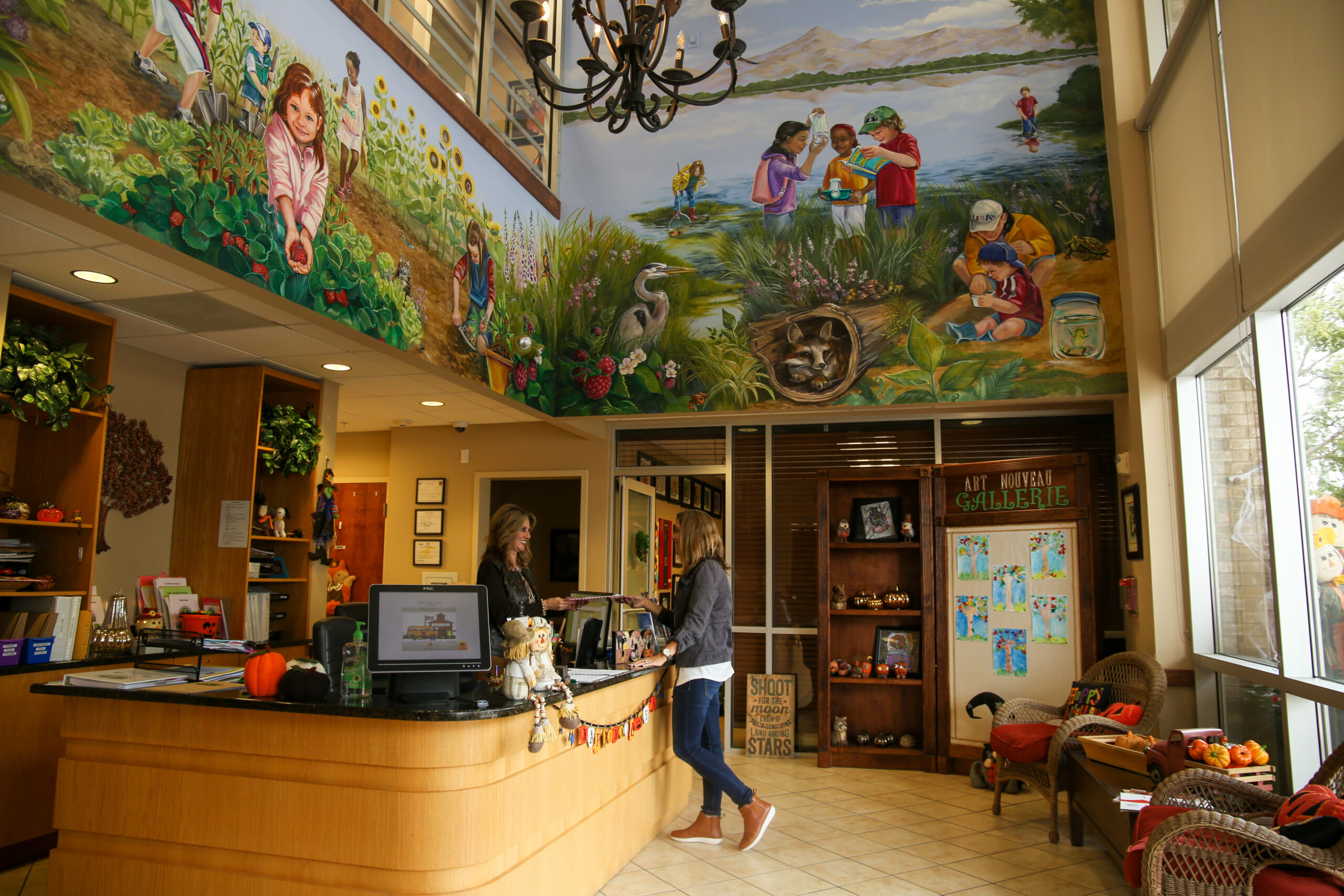Pre-primary students are between 18 months and 3 years old.
Our Pre-Primary ratio is 8:1 with a maximum class size of 16 children and 2 teachers.
Parents sign up for one week each semester to provide snacks for the entire class. A list of what to provide is sent home in the child’s green daily folder. If a child has food allergies that may prevent him/her from eating the snack provided in the rotation, we ask that parents pack a daily snack.
Parents have the option of either packing lunch for their child, or purchasing a hot lunch from the school. If parents choose to provide lunch, it should be healthy and packed in easily opened containers that the child can practice doing themselves. Lunch provided by the school is made fresh on-site every day except Fridays. Friday lunches are pizza from a local pizzeria, or Chick-fil-a on the last Friday of the month. The school provides a vegetarian as well as a non-vegetarian option. Please inform the school of all dietary restrictions and/or food allergies for your child
Children who are part of the extended day program can be dropped off as early as 7:00am. All other children should be dropped off between 7:45am and 8:00am. Class starts at 8:00am and gives the children a positive start to the day. Teachers will get your child out of the car and help him/her into the classroom to put his/her own things away. The teacher will greet the child and help the child with his/her things. If you have something important to tell the teacher, please send it in a note or an e mail. Arrival is often a very busy time and not the best time for a discussion with the teacher.
We have three different options for Pre-Primary students: 11:30am half-day dismissal, 2:30pm. full day dismissal, and 6:00pm extended day dismissal.
Pre-Primary students will start the transition to the Primary classrooms beginning around age 2 years 8 months. Children have to be fully potty trained in order to be in a Primary classroom. They will visit the Primary class several times, eventually becoming a full time Primary student when they are ready, usually close to 3 years old.
7:45-8:00 a.m. Arrival Time and Work Time 8:00am – 9:45am Work Time. During work time teachers are giving lessons on the Montessori materials in the classrooms. The materials are developmentally appropriate and meet the needs and interests of the toddler age child. The art teacher is in the classroom every day for art. The students also enjoy a snack during this time, as well as going potty/diaper changing. 9:45am-10:15am, Outside/Free Play 10:15am – 11:00am, Circle Time as well as Music and Movement while getting ready for lunch 11:00am – 11:30am, Lunch 11:30am, Half Day Dismissal 11:45am – 1:45pm, Nap Time 1:45pm, Wake Up 2:00pm – 2:15pm, Afternoon Snack 2:15pm – 2:30pm, Story Time 2:30pm, Full Day Dismissal 2:30pm – 6:00pm, After Care
After Care is a less structured time when children get to be social and engage in different kinds of play. If the weather is nice, children play outside. If unable to go outside, children are able to play in our large, multi-purpose room. The children play with non-Montessori materials in the classrooms. The children have an afternoon snack, and have fun playing and singing with each other and the After-Care teacher. Parents can come anytime to pick up their child.
No. We encourage early potty training, and the teachers work with you and the child to achieve success. Children are frequently given reminders to go potty all throughout the day.
Toddlers love chores! Invite them to help you fold laundry, put dishes away, pour their own milk, clean up their own spills, even help make dinner! This is good work for them, and makes them feel important and engaged with the family. Turn off the TV, computer, and tablet. Teachers can see a difference in the focus and attention span of Toddlers who watch a lot of TV and those who do not. The children who do not watch TV or use electronic devices are more eager to learn and are more interested in the Montessori Materials. Research has proven a direct correlation between screen time and brain development in children under the age of five years. Also, let them play outside! Exploring nature is a wonderful way to learn, have different sensory experiences, develop coordination and balance, and move their bodies.






